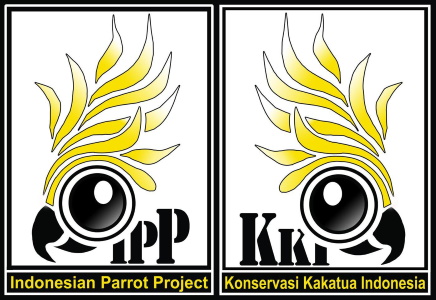CAP Program in Indonesia
“Teaching & Awareness”
The ability of measures such as interdiction of bird trapping and smuggling, and the use of ecotourism to provide alternative means of support for former bird trappers, can have only a circumscribed impact on the conservation of endangered species of parrots , rather than a have a lasting and meaningful one. These measures do not get at the root causes of trapping and smuggling–either financial or social–and can only affect the ‘tip of the iceberg’ of the problem.
A much more meaningful approach would be to change the attitudes and economic conditions which culminate in bird trapping as an economic necessity which is socially acceptable. To do this, we must target not only the adults in the villages, but especially the children–the future generations– and get them directly involved. Such activism must be sought by means which are both enjoyable in the short term and conducive to a sense of worth and value in the long term.
Following the lead of Paul Butler and others, our program emphasizes the building of Conservation values through increasing Awareness and Pride, and is therefore called our CAP Program.
The program will increase “Awareness” of the fundamental types and nature of parrots involved; the inhumane effects of trapping and the wild bird trade and, more importantly its lasting and detrimental effects upon a natural gift (and resource) which is localized to their small region alone. The lack of sustainability of bird trapping is also underscored.
It will link “Awareness” to “Pride” through a series of steps designed to familiarize the people (and especially the children) of Maluku with the image of its unique endemic parrots (using the Salmon-crested cockatoo as ‘flagship’ species).
These measures will range from some we have already employed on a small scale (e.g., t-shirts, a coloring book featuring cockatoos) to posters; city and highway signs; drawing contests; murals; puppet shows; songs; radio and TV presentations and the like. It will also include trips to the Kembali Bebas Rehabilitation Center to see the birds there, and witness the releases of birds back into the wild (as occurred in March of 2006).
The program will be carried out not only in Maluku, in the Eastern half of the archipelago (where the parrot trapping occurs) but also in the much more affluent urban areas of the Western archipelago (such as Jakarta), where many of the wild birds end up in the abysmal bird markets, or in the homes of the rich and powerful.
To more effectively carry out the latter, in 2007 a new entity was established for IPP in Indonesia called a perkumpulan. A perkumpulan is similar to what is called in the U.S. a NGO (non-governmental organization), but with a stronger flavor of a grass-roots society. The Board of Directors is comprised of three members from IPP, plus two from Indonesia: Dudi Nandika and Dwi Agustina (see “The Family“).
The Work










